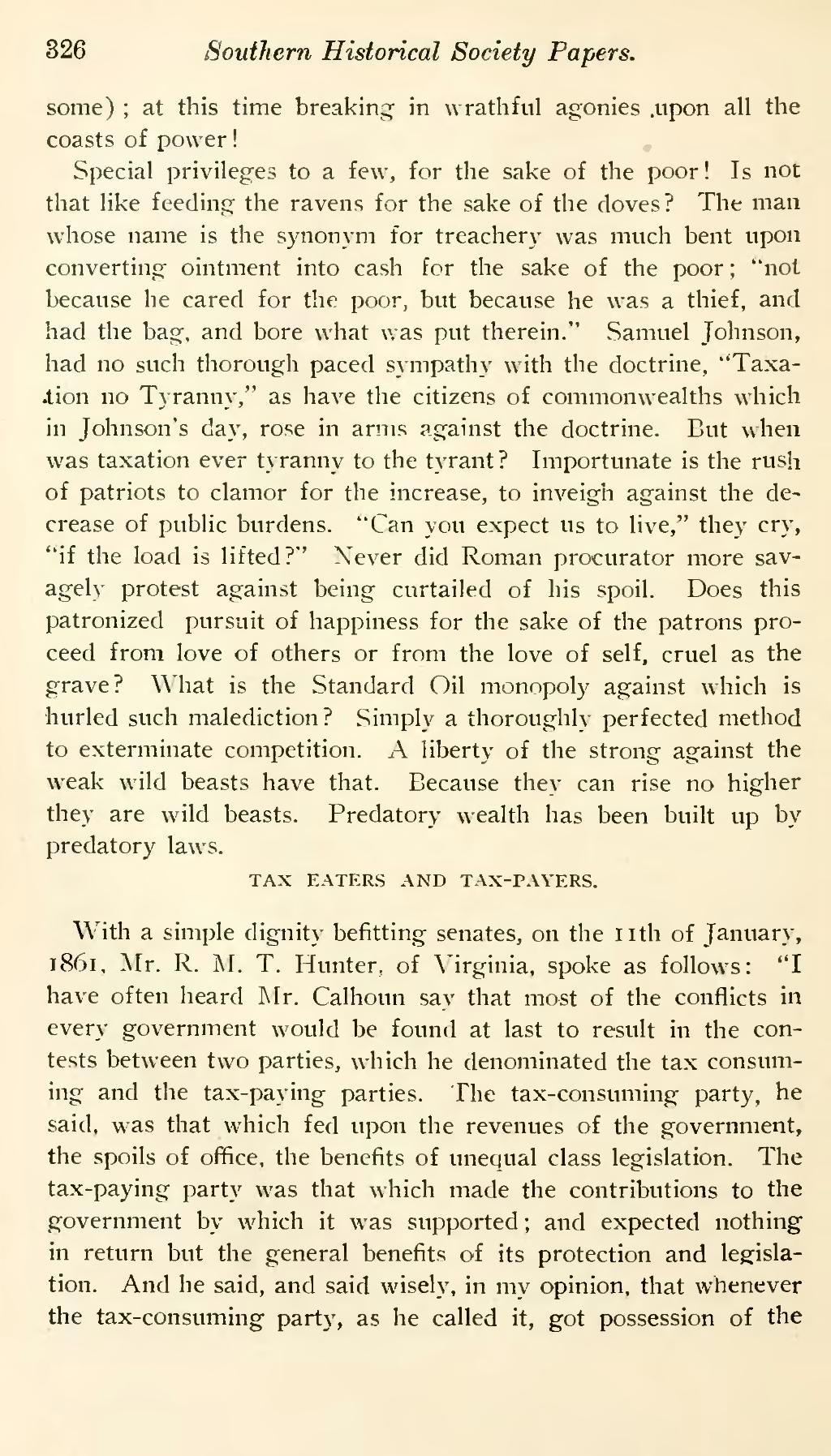some; at this time breaking-in wrathful agonies .upon all the coasts of power!
Special privileges to a few, for the sake of the poor! Is not that like feeding the ravens for the sake of the doves? The man whose name is the synonym for treachery was much bent upon converting ointment into cash for the sake of the poor; "not because he cared for the poor, but because he was a thief, and had the bag, and bore what was put therein." Samuel Johnson, had no such thorough paced sympathy with the doctrine, "Taxation no Tyranny," as have the citizens of commonwealths which in Johnson's day, rose in arms against the doctrine. But when was taxation ever tyranny to the tyrant? Importunate is the rush of patriots to clamor for the increase, to inveigh against the decrease of public burdens. "Can you expect us to live," they cry, "if the load is lifted?" Never did Roman procurator more savagely protest against being curtailed of his spoil. Does this patronized pursuit of happiness for the sake of the patrons proceed from love of others or from the love of self, cruel as the grave? What is the Standard Oil monopoly against which is hurled such malediction? Simply a thoroughly perfected method to exterminate competition. A liberty of the strong against the weak wild beasts have that. Because they can rise no higher they are wild beasts. Predatory wealth has been built up by predatory laws.
TAX EATERS AND TAX-PAYERS.
With a simple dignity befitting senates, on the 11th of January, 1861, Mr. R. M. T. Hunter, of Virginia, spoke as follows: "I have often heard Mr. Calhoun say that most of the conflicts in every government would be found at last to result in the contests between two parties, which he denominated the tax consuming and the tax-paying parties. The tax-consuming party, he said, was that which fed upon the revenues of the government, the spoils of office, the benefits of unequal class legislation. The tax-paying party was that which made the contributions to the government by which it was supported; and expected nothing in return but the general benefits of its protection and legislation. And he said, and said wisely, in my opinion, that whenever the tax-consuming party, as he called it, got possession of the
